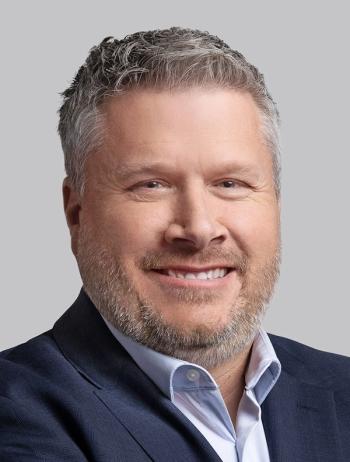
Your Voice: Government to blame for no universal healthcare
Your cartoon “Expecting a universal EHR standard is a childlike belief” (Medical Economics, October 25, 2017), states that a universal data set is a childlike dream. The fact that the previous administration, through HHS, forced an ill-planned EHR mandate on us, makes them the children.
We should have constructed a universal data format that would easily be portable for patients and physicians, but no one solicited the opinion of practicing physicians.
We have seen $27 billion wasted on incompatible records that will never speak to each other.
We can go to any gas station pump, insert a variety of credit cards and securely pay for our gasoline.
Patients should be able to receive a flash drive with all of their medical data and keep it for their own record, take it to the hospital or healthcare provider of their choice and share the portion of their data that is appropriate for that provider. This would be performed with secure encryption controlled by the patient.
The fact that we don’t have this is directly the fault of the federal regulations that forced the ill-advised HITECH Act upon us.
The demise of quality primary care is a direct result of this poor governmental action.
Henry Kaldenbaugh, MD, FAAP
Camp Verde, Arizona
MOC prep takes doctors away from care
I have to applaud your magazine and your editorial staff for publishing “MOC is wrong. Period” (Your Voice, October 25, 2017) written by Dr. Edward Volpintesta, MD. The whole MOC program is sucking the life out of doctors. I am board-certified in internal medicine, but I do not practice, because I specialized in phlebology (treating varicose veins). To participate with certain medical insurance carriers, I was required to be “board certified” in a specialty that is recognized by the American Board of Medical Specialties.
Therefore, I took valuable time to prepare and pass the ABIM examination. Not only did preparation for the exam keep me from valuable time I could have spent with my family, but it also caused me to get behind on keeping up with my office EHR (because I just wanted to study). I’ll never get that time back in my life. There are many specialists in my same position that feel that MOC is a waste of valuable time.
I understand and agree with keeping up on CME respective for your field of medicine, but after physicians initially pass their board certification examination, that should mean that they are “certified” at that point.
In my 13 years of private practice, I have had less than 5 patients ever ask if I was “Board Certified.” On top of that, I have NEVER had one patient ever ask if I was enrolled in a “Maintenance of Certification” program.
Again, thank you for publishing articles that matter in today’s medicine.
Manuel E. Garcia, MD
East Lansing, Michigan
Newsletter
Stay informed and empowered with Medical Economics enewsletter, delivering expert insights, financial strategies, practice management tips and technology trends — tailored for today’s physicians.






